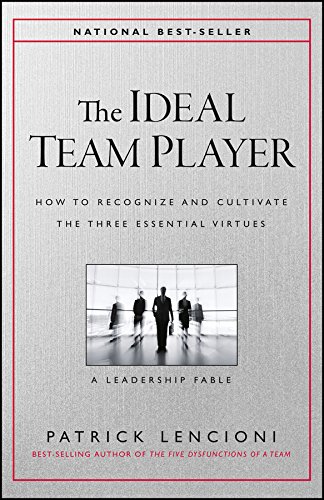Interview with Shruti Venkatesh, Senior Engineering Manager at VTS
Published on Sep 17, 2021
20 min read


[00:00] Vidal: Hey, so good afternoon, everyone. Today, I have Shruti a long-time follower of the ManagersClub here to talk with us. Welcome to ManagersClub Shruti!
[00:12] Shruti: Thanks, Vidal. It’s great to be here.
[00:14] Vidal: I understand you are an engineering manager at Capsule?
Could you introduce yourself and tell us about how you got into management?
[00:22] Shruti: I’m an engineering manager at Capsule. I have been here for about two years now. It’s been super fun, such a great journey being a part of such a fast-growing company. Before Capsule, I was at Jet.com and another fast-growing exciting startup. Before that, I worked in financial services, algorithmic trading for a long time.
Table of Contents
Toggle
- What’s your background and how did you get into management?
- What are the biggest challenges you face as an engineering leader?
- Could you share with us a lesson you learned as an engineering leader?
- What is your approach to hiring?
- What’s your advice for managers who are just starting out?
- What’s your workday like and how do you manage your time, emails, calendar, etc.?
- What’s a personal habit that contributes to your success?
- If you could recommend one book to managers, what would it be and why?
- Share an internet resource, app, or tool that you can’t live without.
- What is your approach to developing, mentoring & coaching members of your team?
- What does it take to be a great engineering leader?
- Where can we go to learn more about you?
- Resources
What’s your background and how did you get into management?
[00:43] Vidal: How did you transition into management?
[00:46] Shruti: I completed my undergraduate degree in Electronics Engineering. This is ancient history, but I didn’t really like it that much. I did have a few computer science courses and I found that I really enjoyed those. I started my first job as a developer. I tried that out for a couple of years, found that I did in fact, enjoy being a full-time programmer.
I came to the US to then get my master’s in Computer Engineering. After that, I was an IC for a long time first at a financial services company, ITG, working on trading algorithms, then at Jet.com working on some fun e-commerce systems.
About getting into management – I led various projects, but I didn’t actively think about moving into management until my manager at Jet.com actually suggested it as a career path for me. And initially, I was pretty reluctant to try it out. I liked being an IC. I wasn’t really sure if I’d like people management and my manager was very supportive of my apprehensions.
So he asked me to informally take on various managerial responsibilities for my team without formally assuming the role. So I started handling all of the stakeholder meetings. He involved me in roadmap planning for the team. He also found ways to involve me in people management. While doing all of these, I found that I really enjoyed having a more holistic view of running the team.
It was complex problem-solving at a different level. While I was trying out this role, I also took some leadership training programs that were offered by the company. I spent some time reading, learning on my own, finding ways to apply some of these learnings in real life. And this opened up really different ways of thinking for me.
So we operated in this mode for a few months and I was really convinced that I did actually want to make the transition. And then when I was ready, we discussed a timeline for a more formal transition, into a management role. This happened a few years ago and I’ve been a manager since, and it’s been good.
[02:42] Vidal: This is really great. You got the opportunity to try it on and ease into it. Yes, a lot of people who are ICs are reluctant to be managers and some of them are just kinda thrown into it. So it sounds like you had a very nice manager.
[02:53] Shruti: He really gave me support structured to ease into the role, as you said.
What are the biggest challenges you face as an engineering leader?
[02:58] Vidal: That’s great. What are the biggest challenges you’ve found as an engineering manager?
[03:04] Shruti: I think last year has actually been very challenging. Capsule is in the pharmacy space and working for a fast-moving startup in the healthcare space. Last year with the pandemic has been really challenging in very unanticipated ways. Our planned roadmaps have gone out of the window a few times because we’ve had to pivot to address business needs.
And we’ve had to do all of this while the teams and everyone else is adjusting to a remote working setup. For instance, last quarter, we had to drop everything and work on a vaccination offering, which obviously took priority over everything else. It also had a very tight timeline. And I think, all of this led to a lot of difficult situations for the team.
It was a lot of, a lot of lack of structure, the planning didn’t go, things didn’t go as planned.
It led to a lot of lack of structure, and things didn’t go as planned.
[03:59] Vidal: Sure you can go back and maybe talk a little bit about, like, how did you keep the team motivated during that? Cause during that kind of chaotic change.
[04:08] Shruti: You’re absolutely right, it was chaotic. And I think when something like this happens it’s very important to tie back the work to the actual business outcomes. So the team understands why this pivot is occurring. Talking to the team about why this new project is important to the company and what the cost of not doing this project is, helps align the team and build investment in the new project as well.
Every time we had these kinds of unexpected changes, I would make sure to take the time to explain to the team why this change was necessary and what the cost of actually not doing this work was. Communication is important at all times, but it’s even more important during times like these. During fast-paced projects, your team can get inundated with information and they may also receive conflicting information because everyone is figuring things out at the same time.
So it’s really important to maintain clarity and keep the team informed of status at all times, even if that status is “I’m figuring out a plan, stay tuned, it’s coming”. Once you have a plan, walk through it with your team, make sure that everyone knows exactly what they’re working on, assigned roles to key people, and have frequent touchpoints to make sure that they feel supported and that they’re cleared on the plan all times.
Could you share with us a lesson you learned as an engineering leader?
[05:26] Vidal: Could you share with us a lesson you’ve learned as an engineering manager?
[05:31] Shruti: I think the lesson I learned pretty early on was that being decisive is really important. This especially holds true in startups when things are moving so quickly and the situation changes on a daily basis. So as a leader, you set the direction and the tempo for your team. If you are dilly-dallying over a decision, that could grind your team down to a halt, and it could also see this slow down the teams around you.
It’s a ripple effect, right? So I think to be an effective decision-maker you need to do a few things. The first is to not get into this analysis-paralysis mode. You may gather more information to help make your decision with time, but that comes at a cost. It’s important to designate a certain amount of time for information gathering, and then take a clear-headed decision with the data that’s available to you. Seek opinions, but understand that you’re the final decision-maker. It also helps to tie the decision back to organizational principles or values wherever possible, because invariably, you’re going to run into conflicts, and tying your decision-making process back to organizational principles helps ensure objectivity.
The second is to be open-minded as sometimes your decision might not be the right one, it happens. You have to constantly assess if your decision is going the way you wanted it to. It’s important to identify areas where it’s not working and pivot wherever necessary.
The last is really being honest and humble. Hopefully, this doesn’t happen, but if your decision bombs, then have a retrospective with your team. Accept the blame, but don’t assign blame to others. How you behave will dictate the risk appetite for your team and you want your team to take informed risks. Everybody performs better when they take informed risks. Creating a safe and self-reflective environment will give you better results over time. So that’s it in a nutshell, learn to be a good decision-maker.
[07:31] Vidal: And being decisive, you said
[07:33] Shruti: Yeah, exactly. Being decisive.
[07:34] Vidal: Yeah, cause people, yeah, I think people admire that about startups, that they can move quickly, but it requires you to be decisive.
[07:41] Shruti: Absolutely. Yeah,
[07:43] Vidal: What would be your approach to hiring? And now I think what’s interesting is you’re at a startup and you’re in New York City.
[07:50] Shruti: Yeah.
What is your approach to hiring?
[07:50] Vidal: So what’s it like hiring there and what’s your approach to that?
[07:55] Shruti: Hiring is a really important skill and it’s something that you should constantly be honing as a manager. Every new person you bring into your team will change how your team behaves as a unit. So it’s important to really dig into what is important to the organization, what’s important to the team, and what’s important to you.
Besides the technical skills, it’s fairly important that any new hire is a great team player. Nothing shattering there, but I think all of us want great team players. My last manager introduced me to this ideal team player rubric developed by Pat Lencioni and I’ve really used it to assess hundreds of candidates of the last couple of years. It works really well. According to him, an ideal team player has three characteristics:
First is they’re humble, so these are people that are generous with giving credit to their colleagues. They’re not interested in being the star and they want to amplify all voices. It also doesn’t mean that they’re self-deprecating, they’re pretty confident in their self-worth. They’re confident enough to speak out about their thoughts and ideas in discussion.
The second characteristic is that they’re hungry. So these are people that are eager to learn, to take on new challenges. They are very self-driven rarely require their managers to motivate them or goad them into action.
And the third is that they’re smart. And smart here is not really intelligence, as we commonly know it, it’s more people smarts. So these are people that have common sense about working with people that are interpersonally appropriate, aware, good listeners, good communicators, and stay engaged in group settings.
These are really the three characteristics that I usually look for and now the same happens at my org. In any interview, I ask probing questions to assess each of these competencies and then dig deeper to make sure that the candidate is not just saying what they think I want to hear. That answer should actually hold water and make sure to get two or three different data points for each competency.
Ideally, you want your candidate to hit all three, but even if they hit two out of three and they’re stellar at all other aspects it could be a hire, but you need to understand that you may have to spend a little bit more time coaching them on the competencies that they didn’t do as well on.
[10:05] Vidal: This is really interesting. The Ideal Team Player rubric. I hadn’t heard of this, so I’ll have to look this up.
[10:13] Shruti: Yeah, it’s really interesting. It was written a while back and I find that it’s been so consistent in helping me hire for my teams.
[10:23] Vidal: I think that’s great. Yeah, having rubrics is good. And yeah. Thank you for sharing this.
Now you became a manager a couple of years ago, I think you said. What would be your advice for managers who are just starting out or transitioning into management?
What’s your advice for managers who are just starting out?
[10:37] Shruti: It’s hard, transitioning is hard. We spent so many years honing our craft as an IC, and then all of a sudden you’re put into this role and you have to figure it out on your own most times. I think the most important thing is to just take a moment and accept that your role has changed in a few ways.
This was hard for me, as much as you might not like being perceived as an authority figure, you are one now. For me, I love being part of the gang and after becoming a manager, I was perceiving the small ways in which my team treated me differently. And first I was like, is this just me? But then I spoke to other managers and almost everyone had similar experiences. You just have to get comfortable with it and accept that you are the final decision maker. If you play down your role as a manager, it’s only going to lead to confusion and a lack of direction on the team. You can be vulnerable to your team and let them know that this is your first time doing this and that you appreciate their feedback, but there’s no stepping away from the fact that your team is looking to you for guidance and for direction. So that’s really the first piece of advice. Don’t downplay your role as the manager.
The second one is that your deliverables look different now and you have to accept that. So as ICs we’re so used to being measured by our individual delivery, but as a manager of the team, success is your success. And it’s hard to quantify that success sometimes, right? As an IC, you can point to this piece of work and code and say, that’s mine, I made that happen. But as a manager, you no longer have this concrete chunk of work that you can point to and say, I made that happen. This for me at the beginning also led to imposter syndrome, where I was like, what have I done to ensure the success of this project and this team?
My second piece of advice is to spend some time with your manager to document to really write down what success means for your new role and move away from your predefined ideas of success that you had internalized as an IC, and then write down all of the things that you have done to help make something a success — how you planned, what strategies you implemented, how you staffed a project, make sure to document all of that. So you can go back and say, these are my achievements, and this is how I made this project happen and this team successful.
[12:51] Vidal: I think that’s great. I like to tell people it’s a totally different job,
[12:55] Shruti: Yeah.
[12:55] Vidal: radically different. Yeah. Thanks for sharing those. I think those are very good advice for new managers.
What’s your workday like and how do you manage your time, emails, calendar, etc.?
One difference between managers and ICs is your schedule and how you manage the time I find. What’s your workday like as a manager and how do you manage your time meetings, email, et cetera.
[13:15] Shruti: I think I read this somewhere, but again, something that you, you have to accept as a manager, is that your role is to be interruptible so that your team doesn’t get interrupted. Like you’re the one that has to attend the meetings, answer those slacks, answer those questions, synthesize that information and protect your team from distractions.
Again, it is part of your job as a manager. But what I do usually to help organize my time a little bit better is I spent Sunday night reviewing my meetings, blocking out time for the following week to do any deep work that’s needed in that week. I also have a recurring half-day block, usually on Wednesdays for any medium to long-term work that I need to do and every morning I spend about an hour organizing my day. First, I’ll chalk out all of my top priorities for the day in a checklist, then I look through my meetings for the day and spend some time prepping for each of them. Write down my thoughts, write down what’s expected from me – just prepare those notes beforehand. If I have one-on-ones, similarly, I’ll review notes from previous one-on-ones, jot down anything that I need to talk to my people about. If it’s a meeting for the project, I’ll review the agenda, do any prior preparation. I’m the very opposite of a wing-it personality. I need to be prepared. Oftentimes, like many managers, I just go from meeting to meeting. So spending that hour earlier in the day to just organize my thoughts is really helpful for me.
[14:43] Vidal: I think that’s great how you block out time to do that. And every morning prepare for each meeting. Yeah, cause you go from meeting to meeting. You don’t necessarily have time to prepare just before the meeting. Cause you’re coming from another one. So you’ve taken time in the morning to prep that.
[14:58] Shruti: Exactly. It’s like context switching so having pre-prepared notes to just look through as you go to another meeting is really helpful.
What’s a personal habit that contributes to your success?
[15:08] Vidal: I think that’s a great tip. What would you say is a personal habit that contributes to your success?
[15:16] Shruti: I’ve always been a very avid reader. I was always that kid that, you know, had her nose in a book growing up. Like a lot of people, I read books on personal and professional development, but I also need a lot of fiction. And I think reading a lot of fiction has impacted the person I’ve become and the leader that I am.
Reading fiction means you’re transporting yourself into the shoes of a character and the circumstances in the world in which those characters exist. And when you do this consistently over years and over decades, I think it helps build emotional intelligence and empathy. And both of those are really key to being successful, not only as a manager, but also as a teammate, but even more so as a manager or as a leader.
Oftentimes books about professional, personal development, boil issues down to a binary – this way is right, this way is wrong. But real life is not binary, there’s a lot of gray in your life and that’s what fiction allows us to do. I think it helps us explore the nuances, different viewpoints, each viewpoint as valid as the other. It helps us examine our interpersonal relationships, learn from the experiences of characters in the books. And yeah, just helps develop that EQ and empathy.
I recently came across some studies that were exploring how reading fiction makes us better leaders. HBR also has a paper on this, which is pretty interesting. I didn’t think I needed a reason to read more fiction, once I saw that HBR paper it gave me one more!
[16:48] Vidal: Wow. I’m going to look that up, I think. And it’s great. I love that you’re an avid reader. Cause I love reading too. And I always ask people to recommend a book, so I’d love it. Do you have any like fiction books? Because people always recommend business books, right? Like you have some fiction books you would recommend that are good?
If you could recommend one book to managers, what would it be and why?
[17:07] Shruti: I recently finished reading two from this author called Madeline Miller. I’d been meaning to read these for a while and I was very happy when I finally was able to check them out from the library. The two books are called the Song of Achilles, and Cerce. And Medline Miller’s work is rooted in Greek epics, so these are both rooted in the Iliad and the Odyssey. But she leaves in all of these themes around feminism, homosexuality, and the beauty of a work is that it fits in really naturally with the narrative. These themes don’t feel contrived in any way. I really enjoyed them and I recommend them, and I hope she writes more, they are wonderful books.
[17:46] Vidal: Okay. Awesome. I’ll have to check those out. That’s great.
[17:49] Shruti: Yeah, I hope you like them.
Share an internet resource, app, or tool that you can’t live without.
[17:51] Vidal: Is there any internet resource, app, website tool that you depend on a lot that you might recommend?
[17:59] Shruti: I’m a pretty chronic list-maker and note-taker, so for me, a Trello is really helpful. I keep track of all of my lists there. Evernote is really helpful as well and I keep track of all of my notes there. And I think I run my life on a combination of these two apps soI really hope that they are around for a long time because I’ll be in trouble otherwise.
[18:21] Vidal: I’m a big user of Evernote myself. I have so many thousands of notes in there. Like a scratchpad for my brain, I just dump things in there.
What is your approach to developing, mentoring & coaching members of your team?
What is your approach to developing, the members of your team, either coaching them or giving them career development advice? What do you do?
[18:37] Shruti: When I’m coaching them, it’s more kind of day-to-day action-oriented directives and feedback. It’s usually helping them reach a certain goal in a certain period of time. I usually just keep an eye out for where I need to step in, steer people, give them actionable insights, directives, or even just have another engineer step in and play coach sometimes.
Mentioning is more long-term. That’s its mode about rounding out your direct report as a person, understanding what motivates them, what their goals are, how you can work together to achieve them. When I started out, I was doing this a little bit informally, but now what I do now is at the start of the year and halfway through the year I have my direct reports answer four questions.
I found these on Twitter and I thought they were really helpful and targeted. The questions are:
- What skills do you want to master as an engineer?
- What experiences do you want to have?
- What types of activities do you like doing the most?
- What impact do you envision having during your career?
I then looked to see where I can find that overlap between what my engineers want to do and what the team roadmap looks like.
For instance, if someone’s interested in improving their project management skills, I might have them lead a project end to end, break down the work, work on delegation, et cetera. Sometimes, I might have to go outside the team, find opportunities or create them whenever needed. Part of the role of an EM is to proactively find areas where your direct report can grow. Like my manager did, he proactively figured out that I could go into management and be successful there.
So here it’s easy to play on the strengths of your directs. Find areas in which they’re already good, suggest ways in which they can get better. Be proactive and discuss ways in which they can round themselves out personally. But all of this really requires a deep level of commitment from the manager’s end. You should be thinking often about the growth of your direct reports and create tailored plans for both of you to work on.
[20:37] Vidal: I like this.
[20:39] Shruti: Yeah. I thought they were really helpful too.
[20:41] Vidal: How often do you ask them these questions?
[20:44] Shruti: I usually do it twice a year, so I’ll do it at the start of the year. And then we review them every so often in our one-on-ones. And then again, midway through the year,
What does it take to be a great engineering leader?
[20:54] Vidal: Awesome. What do you feel it takes to be a great engineering leader?
[20:59] Shruti: I think it’s three things. It’s a mix of vision, execution, and investment in your team. Having a clear vision is really important because it’s hard to motivate your team towards a goal if you don’t have a clear picture of what that goal is yourself. Equally important is your ability to describe your vision to the team, and then reinforce it often with the team.
For great execution, you need to first identify a clear plan and make sure that everybody’s aware of the plan. Great execution also depends on how much teams have been enabled to execute on their own. Sometimes you have to be a little bit more hands-on as you’re building out the team, but personally, I think it’s also really important that you provide the scaffolding within which your engineers can operate independently. And then your own experience can help identify potential pitfalls in any plan and limit the blast radius when things go wrong.
Finally, that really isn’t a substitute for genuinely being invested in your people. It’s a combination of being vulnerable yourself, transparent, and giving direct feedback. I think this has helped build stronger relationships, both with people that report to me, as well as people that I report to. A great leader is only as good as their team. So it’s really important to invest that time and to take care of your team.
[22:15] Vidal: Shruti this is great. The stuff you shared because you’ve clearly thought about a lot of these things. And I really appreciate your coming onto ManagersClub and being a fan so thank you for being here.
[22:28] Shruti: Thank you so much for having me and thank you for keeping this resource going. It’s been so helpful.
Where can we go to learn more about you?
[22:35] Vidal: Oh, you’re welcome. You’re welcome. Where can people go to connect with you to learn more about you afterward?
[22:40] Shruti: LinkedIn is probably best, I’m pretty active on LinkedIn I usually respond pretty quickly if I’m reached out to. I also mentor on PlatoHQ and PowerToFly. I have personal stories about my experiences published there. Recently, I also started writing some tech articles on Hacker Noon, so I have a couple of articles there as well, but if you want to reach out to me, LinkedIn is best.
[23:02] Vidal: Okay. Of course, it’s a great resource and I will, I’ll if you send me links to those articles, I’ll post them too in the show notes for people.
[23:10] Shruti: I’ll do that right after.
[23:11] Vidal: Awesome. Shruti, thanks again so much. It’s been great to talk.
[23:15] Shruti: Likewise. Thank you so much for having me.










